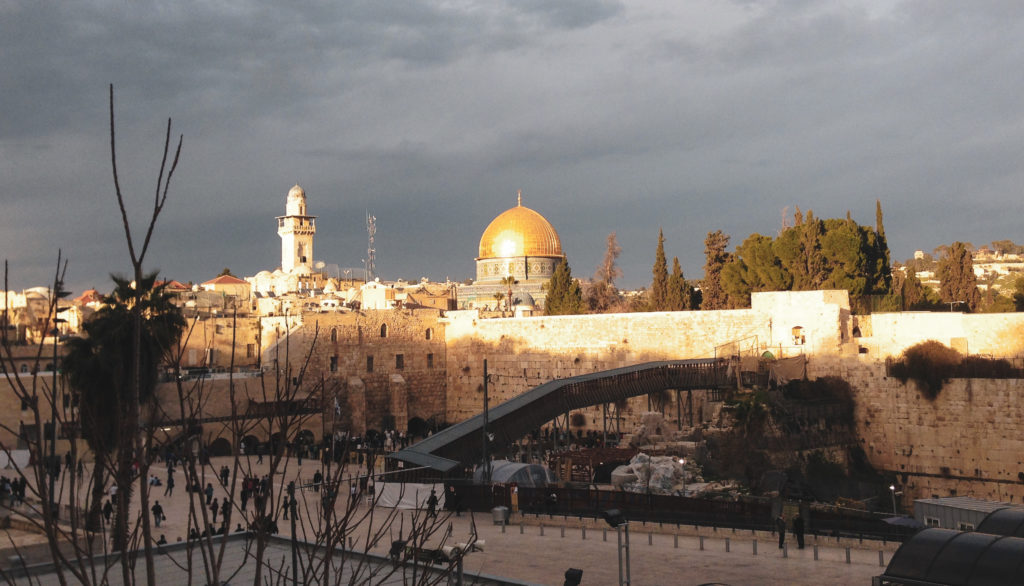
The confrontation between Palestinians and Israelis has once again reached catastrophic levels. For decades this dispute has faced two cultures whose presence in the area dates back thousands of years and whose solution could reach the same age. While it is true that the conflict has many angles, it is its highly religious nature that transforms the discussion about the belonging of Jerusalem into the most delicate point. We will never find a solution to this confrontation if we continue to see the city as a simple possession.
Although Israel currently controls it, within its limits, sacred areas have been formed in which several of the essential spiritual precincts for Judaism, Christianity, and Islam are venerated. For this reason alone, the city is also a constant tinderbox for conflicts that can quickly escalate from a local confrontation to a conflict of a global scale. The possession of the city constitutes the most delicate component of the conflict. However, thinking – or perhaps feeling – differently about this problem can help us find our way to peace.
Jerusalem cannot be possessed. Centuries of conflict will turn into millennia if we continue to think of the city as a simple belonging. We believe that it is ours, as do the Palestinians and much of the Arab world. In the same way, every time the conflict breaks out, international public opinion takes sides with one of both sides, interspersing their preferences while defining who is the David on duty and who is the Goliath. The truth is that for centuries humanity has witnessed a confusing dispute. Jerusalem is the spiritual capital of the world, but only two governments reclaim its control.
There is no international agreement that can delimit faith, nor is there any pact capable of containing it. Its mysteries accompany the human being from the beginning of his existence and will probably continue to do so even after uncovering the universe’s great mysteries. We cannot understand it, only feel it, in that lies the power of its practice. Its powerful influence on human life cannot be defined by drawing lines on a map, its essence is to tear down any border between men, and no matter how hard people try to distort it, for faith, there are no enemies, only brothers. Its foundations are immovable; that is why the prophets of the three most influential religions in the world coincided, even in different historical and social moments, in a single message of love and union, which until today, forms the moral pillar that upholds the faith of billions of human beings.
What is sacred then? The synagogues and mosques where men learned to live righteously? The places where holy men ascended to heaven? The rubble of majestic temples? And if all this is sacred, it is even more important to ask why. Jerusalem should be the living memory of those masters who dedicated their lives to teaching us how to come out of darkness, not to enter it.
What do their sermons have to do with endless wars, bombs, or murdered innocents? Their preach was not about collapsed homes, or anti-aircraft shields, or exploding buses, or drones with a surgical capacity to end life, or pride, or giant walls, or skies lit by thousands of rockets, or about despair or panic, nor much less about the unstoppable crying of millions that they wanted to instruct us about.
What they taught were love and forgiveness; it was peace and compassion.
So I ask myself again: What is sacred?
The city of eternal war should be the universal home of tolerance, not the place with zones restricted by hatred and ignorance. We have turned it into a city of forbidden streets for brothers of a different faith, where you cannot walk if you are obviously Jewish or too Arab. Jerusalem has become the city of constant contradiction because we have allowed it. It will continue to be so as long as we continue to fight to possess it instead of celebrating it.
Jerusalem belongs to all humanity, and for that reason, it must be its sole owner. As with the Vatican, Jerusalem must claim its own autonomy so that it is never again invoked to justify hatred and destruction. Jerusalem must once again become the natural bridge of nations and cultures, the ultimate meeting place and the home of peace. Let the city fulfill its destiny and transform itself into what it should always have been:
The most sacred place in the world.

